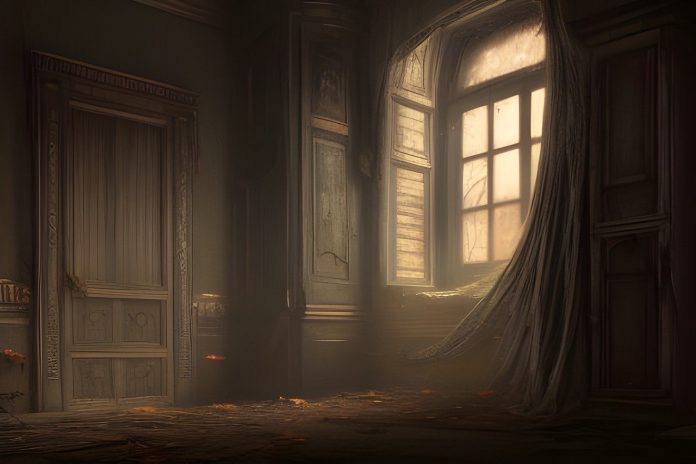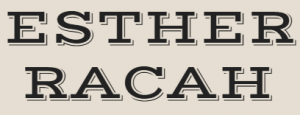The Labyrinth of Deception and Virtue in “Wieland: or, The Transformation: An American Tale” by Charles Brockden Brown
Introduction
“Wieland,” penned by Charles Brockden Brown, is an inaugural masterpiece that heralds the beginning of his illustrious literary career. This Gothic novel, published in 1798, holds a distinguished place in American literature, serving as a cornerstone of Brown’s literary legacy and establishing him as a seminal figure in the annals of literary history. It is revered as the first American Gothic novel, “Wieland,” which weaves elements of horror, psychological suspense, and moral ambiguity to fashion a narrative still enthralling centuries after its debut. As Brown scrutinizes the depths of the human psyche and explores the repercussions of deceit, “Wieland” emerges as a timeless masterwork showcasing his enduring talent and literary understanding, captivating audiences with its nuanced portrayal of the human condition and the darker aspects of the human soul.
Evocative Setting: The Rustic Landscapes of “Wieland” by Charles Brockden Brown
The action in “Wieland” by Charles Brockden Brown primarily unfolds in rural Pennsylvania, in the fictional town of Mettingen, during the late 18th century. The novel, set against the backdrop of the American frontier, immerses readers in the rustic landscapes and isolated communities of early America. From the tranquil beauty of the countryside to the eerie solitude of the wilderness, the setting of “Wieland” serves as a multifaceted tableau against which the characters’ struggles and turmoils unfold. As the narrative progresses, the idyllic scenery of rural Pennsylvania becomes imbued with an atmosphere of gloomy suspense and foreboding, heightening the tension and enhancing the novel’s Gothic ambiance. Through intense descriptions and atmospheric imagery, Charles Brockden Brown transports readers to a bygone era, where the untamed wilderness mirrors the tumultuous depths of the human psyche.
The Dichotomy of Deceit and Virtue
“Wieland” by Charles Brockden Brown The dichotomy of deceit and virtue lies at the heart of Charles Brockden Brown’s “Wieland,” presenting readers with a profound exploration of the intricate interplay between honesty and duplicity. Through vivid characterizations and intricate plot developments, Brown navigates the complexities of moral ambiguity, inviting readers to contemplate the consequences of ethical transgressions. The excerpt, “From Virtue’s blissful paths away, The double-tongued are sure to stray,” serves as a poignant reminder of the inherent peril posed by deceit, highlighting the inevitable divergence from the path of righteousness. As the narrative unfolds, Brown deftly examines the moral difficulties faced by his characters, compelling readers to confront the ethical complexities of human behavior and the enduring struggle between truth and deception. Through its nuanced portrayal of the human condition, “Wieland” emerges as a novel about moral integrity’s enduring relevance in navigating life’s complexities.
Theodore’s Tragic Descent
At the heart of “Wieland” lies the tragic tale of Theodore Wieland, a descent into madness catalyzed by his insanity and the deceitful machinations of the ventriloquist Carwin. Theodore’s unwavering belief in divine voices propels him along a dark, twisted path manipulated by forces beyond his comprehension. This exhilarating Gothic novel depicts his religious fanaticism and descent into madness. Indeed, Brown masterfully renders Theodore’s unraveling psyche, painting a haunting portrait of a man consumed by delirium, delusion, and despair. Through Theodore’s harrowing journey, readers are confronted with the devastating consequences of unchecked deception as illusions shatter and reality fragments. In Theodore’s descent, Brown lays bare the inherent fragility of the human mind, exposing the profound impact of deceit on individual lives and underscoring the tragic consequences of misplaced faith and manipulated truths.
Clara’s Unwavering Virtue
In stark contrast to her brother Theodore’s descent into darkness, Clara Wieland shines as a beacon of unwavering honesty and integrity in Charles Brockden Brown’s “Wieland.” Throughout the novel, Clara’s steadfast commitment to truth is a moral compass amidst the tumultuous events that engulf her family. Brown intricately portrays Clara with depth and complexity, depicting her as a figure of resilience and moral fortitude in the face of adversity. Despite the heinous crimes at the hands of his brother and all the chaos and deception threatening to make her world crumble, Clara remains resolute in her convictions, unwavering in her belief in the inherent power of virtue to guide her through the darkest times. Through Clara’s steadfast dedication to righteousness, Brown underscores the transformative potential of moral clarity and the enduring strength of the human spirit, offering readers a poignant reminder of the indomitable force of integrity in the face of moral corruption and ambiguity.
The dangerous and fatal religious fanaticism in “Wieland” by Charles Brockden Brown
In “Wieland,” Charles Brockden Brown vividly portrays the dangerous consequences of religious fanaticism, weaving a narrative fraught with danger and tragedy. Through the character of Theodore Wieland, whose unwavering belief in divine voices leads him to commit horrific murderous acts against his family, Brown exposes the destructive power of unchecked zealotry. Theodore’s descent into madness serves as a chilling cautionary tale, illustrating the devastating impact of religious extremism on both the individual and those around him. As the novel unfolds, the insidious influence of fanaticism casts a shadow over the characters’ lives, culminating in a series of fatal and heartbreaking events. Brown’s exploration of religious fervor serves as a sobering reminder of the dangers of blind faith and ideological extremism, urging readers to remain vigilant against fanaticism’s seductive allure and strive for a more rational and compassionate understanding of belief.
Societal Implications of Deception
“Wieland” transcends the confines of individual tragedy and examines closely the broader societal implications of deception, especially within the context of religious fanaticism. Charles Brockden Brown’s astute examination of religious fervor and its susceptibility to manipulation serves as a sobering reminder of the dangers inherent in blind faith and ideological extremism. By weaving a narrative that intertwines historical fiction with psychological insight, Brown sheds light on the timeless struggle between truth and illusion, soundness of mind and madness, urging readers to stay alert and wary of the enticing appeal of deception in all its guises. Through the lens of “Wieland,” the audience is confronted with the stark realities of a society susceptible to manipulation and the enduring consequences of misplaced trust. As Brown masterfully navigates the intricate complexities of religious zealotry, he implores readers to question the narratives presented to them and to recognize the inherent dangers of relinquishing critical thought in the pursuit of absolute belief. Ultimately, “Wieland” stands as a cautionary tale, reminding us of the enduring importance of skepticism and discernment in navigating the complexities of faith and truth in an ever-changing world.
The Tragic Betrayal of Virtue: Reflecting on “Wieland” by Charles Brockden Brown
The teaching highlighted in the quote, “That virtue should become the victim of treachery is, no doubt, a mournful consideration,” underscores the inherent tragedy when deceitful actions betray honesty and integrity. This sentiment reflects a timeless moral principle that resonates across cultures and eras. It serves as a poignant reminder of the profound injustice that occurs when those who uphold virtue and righteousness fall prey to the deception and duplicity of others. This teaching urges readers to recognize the fragility of virtue in a world fraught with moral ambiguity and deception. It challenges individuals to remain vigilant against the seductive allure of deceit and to uphold principles of honesty and integrity even in the face of adversity. Ultimately, the quote underscores the importance of safeguarding virtue from the corrosive influence of treachery, reminding us of the enduring value of moral clarity and steadfastness in the pursuit of righteousness.
Reflecting on Truth and Consequence
Through its vivid portrayal of characters grappling with moral ambiguity, corruption, and virtue, Charles Brockden Brown’s “Wieland” invites readers to undertake a profound journey of introspection. Brown’s masterful storytelling challenges readers to confront timeless questions of truth, integrity, and the profound consequences of their actions. As the characters traverse the dangerous depths of deceit and moral uncertainty, readers are prompted to examine their beliefs and principles, considering the implications of their ethical choices in the face of adversity. In a world where the complexities of human nature often obscure, wickedness and deception lurk around every corner, and moral clarity, “Wieland” serves as poignant evidence of the lasting influence of honesty and the inherent value of virtue in shaping human fates. Brown’s narrative compels audiences to contemplate the far-reaching impact of their actions, urging them to strive for integrity and moral clarity even in the face of overwhelming challenges. Ultimately, “Wieland” underscores the importance of integrity and virtue in navigating life’s complexities and shaping our individual and collective destinies. Charles Brockden Brown declares at the end of this Gothic tale: “I leave you to moralize on this tale. That virtue should become the victim of treachery is, no doubt, a mournful consideration”.





